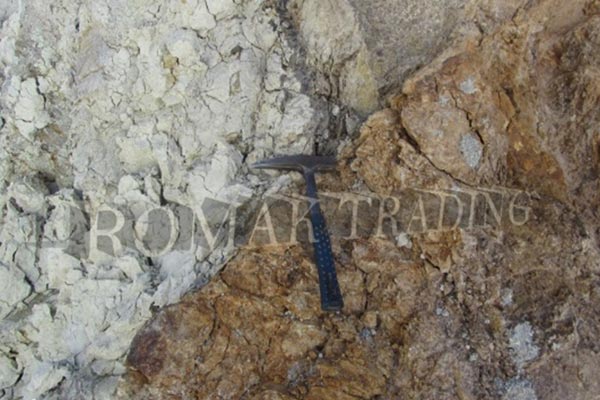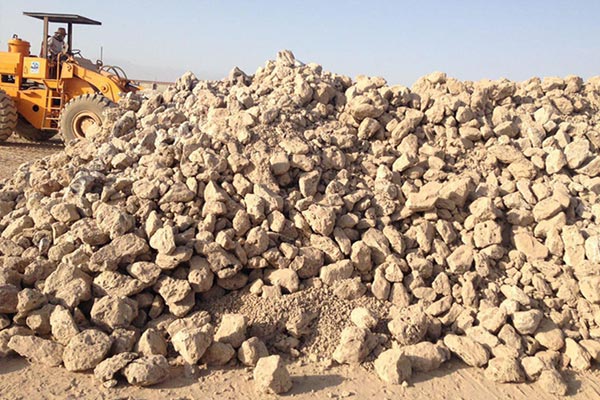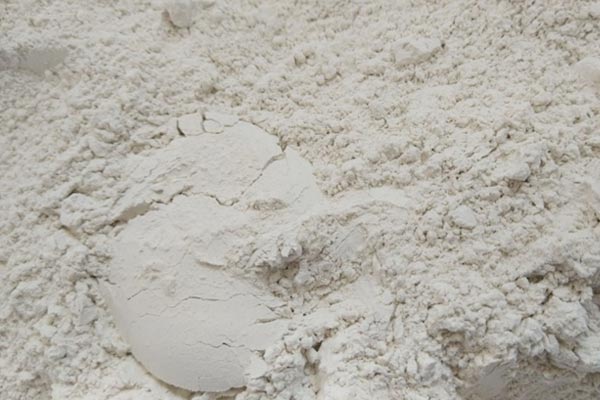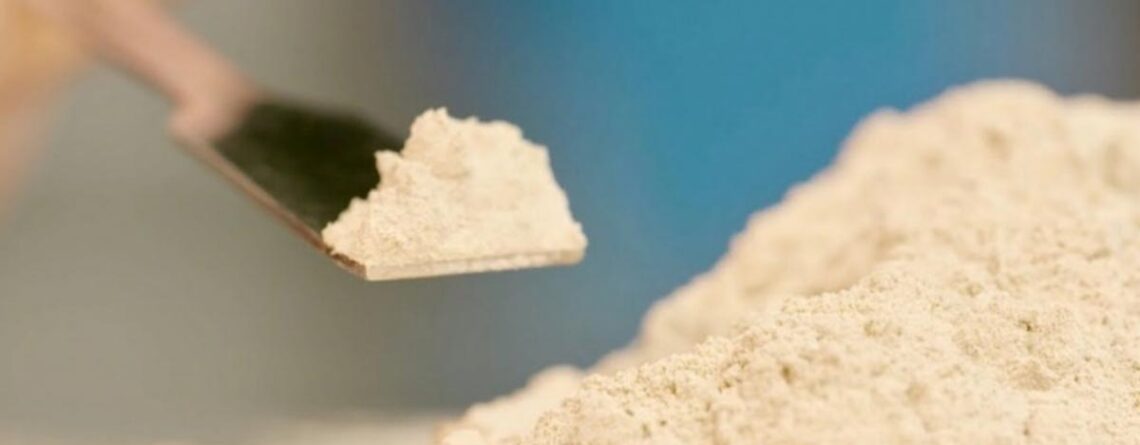Bentonite powder is a highly colloidal clay mineral decomposition of volcanic ash, having the ability to absorb large quantities of water and to expand to several times its normal volume; gets its name from the place where its presence and usages were first discovered – Fort Benton, America.

Bentonite, sometimes referred to as Montmorillonite is a naturally occurring substance, composed of some layers, each approximately 10 angstroms thick; and each consisting of two tetrahedral and one octahedral unit. This structure is responsible for three important characteristics. The ability to absorb significant amounts of moisture, the capacity to exchange ions, and thixotropic gel formation.
Bentonite is naturally occurring hydrated Alumina Silicate, there are two main varieties, calcium and sodium, where sodium Bentonite is the more commercially important. Calcium Bentonite deposits are much more common than sodium Bentonite deposits. However, calcium Bentonite can be changed to sodium one by the ion exchange process. The swelling type or sodium Bentonite, which has single water layer particles containing Na+ as the exchangeable ion.

Calcium and Sodium Bentonite Powder
The other has double water layer particles with Ca++ as the exchangeable ion. It is calcium Bentonite or non-swelling type. The clay-water characteristics are of primary importance. The chemical composition of the Bentonite is a consideration; only because changes in physical properties accompany changes in chemical composition.
The property of water absorption makes bentonite suitable for various industries, and the types of montmorillonite decide the final usage and the process of the same.
The greatest application of bentonite in industries is the result of its swelling property, while combine with water able to perform a multitude of jobs.
Sodium Bentonite powder swells or expands to a greater degree than its calcium equivalent. A small percentage of cation exchange sites are occupied by another ion, such as calcium. A state develops in the clay which promotes both optimum swelling and fastest hydration.
Sodium Bentonite has a higher swelling capacity. This property generates higher viscosity in suspensions, a greater state of disaggregation, and the formation of smaller clay particles or larger colloidal properties. Bentonite, a very fine grind material mostly composite by clay mineral, mainly montmorillonite which chemically describes as hydrous alumina-silicate which contain small amounts of alkali and alkali -earth metals.
Montmorillonite is made of two basic building blocks of alumina octahedral sheet and one silica tetrahedral sheet. Single unit call as “TOT” structure and between “TOT” there is space which is for alkaline ion and can be an exchange and the Ion exchange capacity of montmorillonite comes from this. Montmorillonite is able to absorb water when comes to contract with, water absorption occurs while the H+ ion exchange with alkali ion and resulting increasing in volume more precisely the water comes at the space between two TOT.
Iranian Bentonite Powder
The sodium bentonite having more water absorption capacity makes it suitable for industries like Foundry and Civil engineering applications. The calcium one absorb lesser than Sodium; still, it has some unique use like cosmetics, paper, Animal feed binder as much more to describe.
In fact, the future of this valuable material would be more interesting than it is; a scientist is trying to play with the structure of this natural material and makes it suitable to absorb ultraviolet rays, radiation from the atomic reaction and many more thing; which makes our life easier and more appropriate for this complicated universe.

Iranians have known Bentonite powder and its characteristics; Since distant pasts and used Bentonite as mud shampoo, clay soap, etc. Nowadays, Iran has many Bentonite mines and has a great ability to supply Bentonite for other countries. Iran’s Bentonites are famous because of their outstanding characteristics.
The Iranian bentonites are widespread in several regions, particularly in the Alborz Mountains; as well as in central and eastern parts of the country. They are mainly associated with Cenozoic volcanic activity and are characterized by a variable thickness, concordant contact with their host rocks, lack of traces of fossil, and the presence of abundant primary gypsum as the essential evaporate mineral (Hejazi&Ghorbani, 1994). These deposits, due to their lack of organic materials, can be classified as white bentonites.
It is Romak Trading co.’s honor that can provide all necessary conditions for Bentonite exporting. For more information, contact our minerals department at info@romaktrading.com



Leave a Reply
You must be logged in to post a comment.